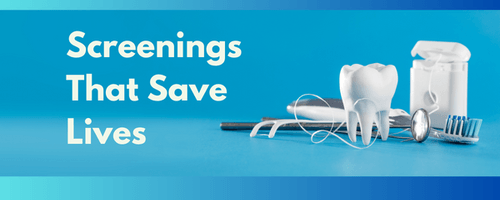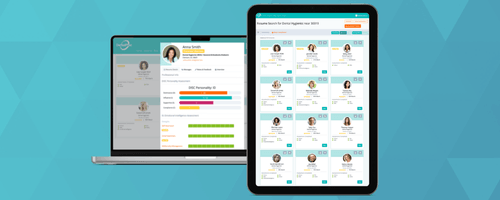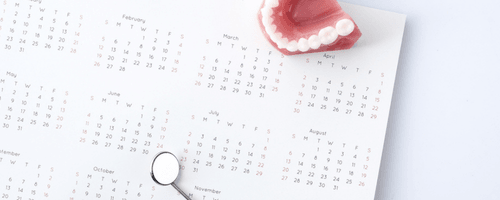
Diverse Voices In Dentistry: Dr. Joy Void-Holmes

Posted November 22, 2021
As part of SmartView, DentalPost is elevating diverse voices and leaders in dentistry so that we can all better understand their perspectives on how to propel our industry forward by creating stronger dental teams and practices through diversity. This week, RDH, educator and Ph.D., Dr. Joy Void-Holmes, joins us to share her experience in the dental profession.
Tonya: Hi Dr. Joy! Thanks so much for being willing and open to sharing your unique perspective. I’m especially excited to have your insight as someone in dental education on this very important topic. To get us going, tell me how you were introduced to dentistry and how it became your passion and career?
Dr. Joy: As a native Washingtonian, I was able to apply for the summer jobs program developed by former DC Mayor Marion Barry. During the summer of 1991, I applied too late and ended up with a job picking up trash. Needless to say, that didn’t go over well for my parents or me. My parents believed in keeping their children busy, so my mother decided to reach out to my childhood dentist, Dr. Juanita Rhodes, asking her if she could give me a job working as a receptionist at her office. After all, I loved going to the dentist and I loved Dr. Rhodes. She was beautiful, successful, the ultimate professional, and her own boss. Most importantly, she looked like me! I worked for Dr. Rhodes for the next five years. It was there that I learned the business of dentistry, developed a passion for teeth, and was encouraged to enroll in dental hygiene school before making the big leap to dental school. After attending dental hygiene school, I had found my passion. I no longer wanted to go to dental school. I had fallen in love with the preventative aspect of dentistry.
Tonya: I love that story! And totally understand how important that experience must have been to be able to literally see yourself in dentistry. I want to dive right into your educational experience and background since it’s so critical to solving the dental labor pool diversity issues we face as an industry. What challenges, opportunities, and steps (big or small) do you think we can take to attract more diverse candidates to the dental schools and the dental industry?
Dr. Joy: Before we can attract more diverse candidates into dentistry, we need to address and overcome unconscious bias. Unconscious biases are attitudes and stereotypes that affect our actions, views, and decision-making ability. Essentially, unconscious bias impacts how we subconsciously think and feel about individuals around us. Ultimately, unconscious bias leads to unconscious preferences for people who are like us. This familiarity colors decision-making, which contributes to a lack of diversity in dentistry. Even one percent of bias can have an exponentially negative impact on diversity within an organization over time.
Opportunities exist to overcome these challenges which will attract more diverse individuals into the dental field. Change must start within dental and dental hygiene schools. Those responsible for recruiting and admissions should be mandated to take training in IDEA initiatives (Inclusion, Diversity, Equality, Access), including implicit bias training. Further, calling out bad behavior and speaking out if biases are detected.
Highlighting diverse individuals in the field is a great first step to overcoming these challenges. By doing so, they will be able to share their trials and tribulations, but also their triumphs and successes that will hopefully inspire other individuals to enter the field and impact those with the power to make decisions void of bias.
Tonya: Yes!! The bias, whether conscious or unconscious, is REAL! We all do it. Awareness can bring about change. It’s what drove me to create SmartView, a new feature for hiring managers on the DentalPost platform to reduce initial screening bias in the hiring process. It’s just a baby step, of course, but I’m optimistic that it’s a catalyst for more change. What specifically can our dental programs and schools do to help increase the enrollment numbers for more diversity in the labor pool?
Dental and dental hygiene programs need to assess the level of unconscious bias within their organization by a third party and truly learn how this impacts recruiting decisions. Once they have done this they need to work to address the biases and implement standard systems for recruiting processes that minimize the use of subjective data. In addition, they need to hire more diverse faculty. Last, they need to create an inclusive culture that attracts more diverse faculty. Unfortunately, this may mean cleaning house.
Tonya: These are big changes. But that’s what it takes. One of the things that keeps coming up in these conversations relates to what you referenced in your entry to the dentistry field story is the need for more exposure of the opportunities the dental field offers to young minorities. Who do you think in our industry would have the most success starting a mentorship program in more diverse communities?
Dr. Joy: This question is hard for me to answer because success looks different for everyone. I would say first is Industry influences who have a firm commitment to IDEA initiatives and second is ADEA (American Dental Education Association), which needs to be FREE. The first step is to get people talking about the things we can do to create change. In that spirit, where would you start the conversation?
I would start the conversation by addressing the problem and explaining how our unconscious biases have created this problem. The human brain unconsciously processes 11 million pieces of information per second compared to just 40 processed consciously, making us 99% unconscious in our decision-making processes.
Tonya: I’m a bit of a data nerd, so I appreciate this stat. And thank you for outlining such specific paths forward. I hope that with these kinds of conversations we can make this happen! What do you think our industry should know or would be surprised to know about what it’s like being a minority in the industry?
Dr. Joy: People in our industry would be shocked to learn in 2021 that the most successful minorities in this industry still face discrimination both overtly and covertly from very well-known highly respected individuals in the industry.
Tonya: That makes me both sad for our industry and for those dental professionals who deserve to be treated better and equally. Anything else you want to add, Dr. Joy?
Dr. Joy: Yes, I really like this quote by Lasana Harris, a neuroscientist who studies prejudice and social learning at University College London. She said that the concept of unconscious bias should not absolve people of discriminatory behaviour, but “if you’re aware of these [biases] then you can bring to bear all of your critical skills and intelligence to see it’s wrong to think like that” and that these are thoughts we all have the ability to control.
Tonya: Love that quote. Thank you for sharing, for who you are and for who you have been in the dental profession, Dr. Joy. People like you make a difference not just for the next Dr. Joy, but for our whole profession!
We connect and educate more than 900,000 job seekers in the U.S. and Canada to build better places to work through teams that excel.
Featured Posts
Featured Posts
Loading...



.png)




